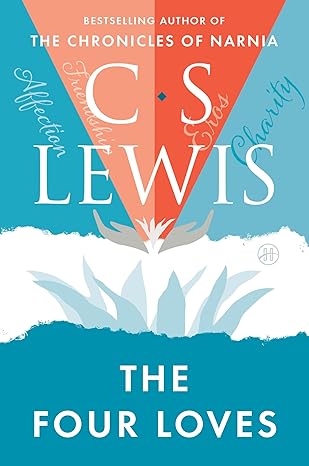A Brief Book Notice from Books At a Glance
Table of Contents
1 Introduction
2 Likings and Loves for the Sub-Human
3 Affection
4 Friendship
5 Eros
6 Charity
Selected Quotes
- St. John’s saying that God is love has long been balanced in my mind against the remark of a modern author (M. Denis de Rougemont) that “love ceases to be a demon only when he ceases to be a god”; which of course can be re-stated in the form “begins to be a demon the moment he begins to be a god”. This balance seems to me an indispensable safeguard.
- To the Ancients, Friendship seemed the happiest and most fully human of all loves; the crown of life and the school of virtue. The modern world, in comparison, ignores it.
- Friendship arises out of mere Companionship when two or more of the companions discover that they have in common some insight or interest or even taste which the others do not share and which, till that moment, each believed to be his own unique treasure (or burden). The typical expression of opening Friendship would be something like, “What? You too? I thought I was the only one.”
- But Eros, honoured without reservation and obeyed unconditionally, becomes a demon. And this is just how he claims to be honoured and obeyed. Divinely indifferent to our selfishness, he is also demoniacally rebellious to every claim of God or Man that would oppose him.
- All who have good parents, wives, husbands, or children, may be sure that at some times–and perhaps at all times in respect of some one particular trait or habit–they are receiving charity, are loved not because they are lovable but because Love Himself is in those who love them.
- He can awake in man, towards Himself, a supernatural Appreciative Love. This is of all gifts the most to be desired. Here, not in our natural loves, nor even in ethics, lies the true centre of all human and angelic life. With this all things are possible.
